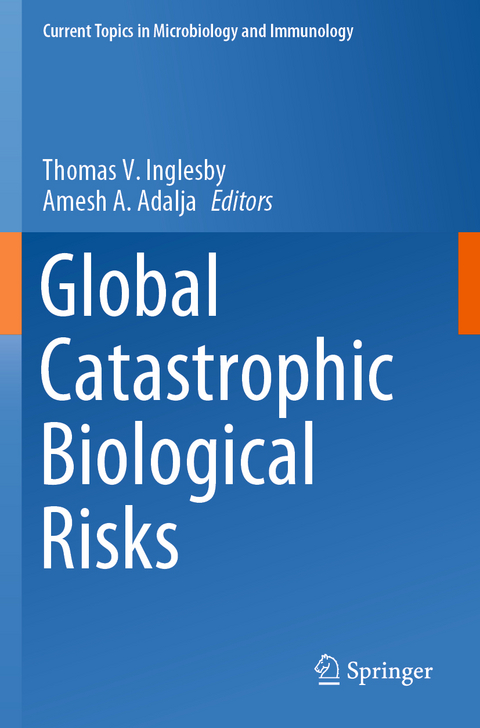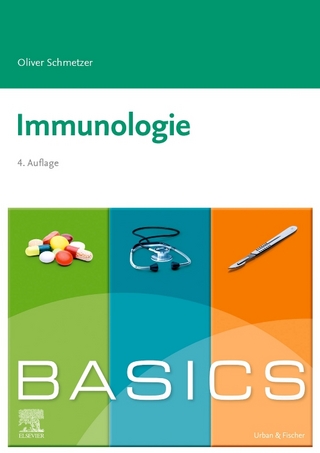
Global Catastrophic Biological Risks
Springer International Publishing (Verlag)
978-3-030-36313-0 (ISBN)
This volume focuses on Global Catastrophic Biological Risks (GCBRs), a special class of infectious disease outbreaks or pandemics in which the combined capacity of the world's private and government resources becomes severely strained. These events, of which the 1918 influenza pandemic is emblematic, cause severe disruptions in the normal functioning of the world, exact heavy tolls in terms of morbidity and mortality, and lead to major economic losses.
GCBRs can be caused by any type of microorganism, and myriad contextual factors can influence their impact. Additionally, there are cascading questions that arise in connection with GCBR prediction, preparation, and response.
This book gathers contributions from thought leaders who discuss the multi-faceted approaches needed in order to address this problem. From understanding the special characteristics of various microbes to financing challenges, the volume provides an essential primer on a neglected but highly relevant topic. Physicians, scientists, policymakers, public health practitioners and anyone with an interest in the field of pandemics, emerging infectious disease, biosecurity, and global health security will find it a valuable and insightful resource.
lt;p>Dr. Inglesby is the Director of the Center for Health Security of the Johns Hopkins Bloomberg School of Public Health. The Center for Health Security is dedicated to protecting people's health from the consequences of epidemics and disasters. Dr. Inglesby is also a Professor in the Department of Environmental Health and Engineering in the Johns Hopkins Bloomberg School of Public Health, with a Joint Appointment in the Johns Hopkins School of Medicine. Dr. Inglesby's work is internationally recognized in the fields of public health preparedness, pandemic and emerging infectious disease, and prevention of and response to biological threats.
Dr. Adalja is a Senior Scholar at the Johns Hopkins University Center for Health Security. He is a board certified physician in internal medicine, emergency medicine, infectious diseases, and critical care medicine. He has served on US government panels tasked with developing guidelines for the treatment of plague, botulism and anthrax in mass casualty settings, the system of care for infectious disease emergencies, and as an external advisor to New York City Health and Hospital Emergency Management Highly Infectious Disease training program.
Characteristics of Microbes Most Likely to Cause Pandemics and Global Catastrophes. - Enhancing Situational Awareness to Prevent Infectious Disease Outbreaks from Becoming Catastrophic. - Viral Forecasting, Pathogen Cataloging, and Disease Ecosystem Mapping: Measuring Returns on Investments. - Risk and Response to Biological Catastrophe in Lower Income Countries. - Global Catastrophic Threats from the Fungal Kingdom. - Artemisinin-Resistant Malaria as a Global Catastrophic Biological Threat. - Does Biotechnology Pose New Catastrophic Risks. - Priorities for Public-Private Cooperation to Mitigate Risk and Impact of Global Catastrophic Biological Risks.
| Erscheinungsdatum | 26.12.2020 |
|---|---|
| Reihe/Serie | Current Topics in Microbiology and Immunology |
| Zusatzinfo | VII, 128 p. 8 illus., 6 illus. in color. |
| Verlagsort | Cham |
| Sprache | englisch |
| Maße | 155 x 235 mm |
| Gewicht | 221 g |
| Themenwelt | Studium ► Querschnittsbereiche ► Infektiologie / Immunologie |
| Schlagworte | Civil Protection • Global catastrophic biologic risk • Global vaccination • Infectious Diseases • Pandemic Plan • Public Health • vaccines |
| ISBN-10 | 3-030-36313-9 / 3030363139 |
| ISBN-13 | 978-3-030-36313-0 / 9783030363130 |
| Zustand | Neuware |
| Haben Sie eine Frage zum Produkt? |
aus dem Bereich


